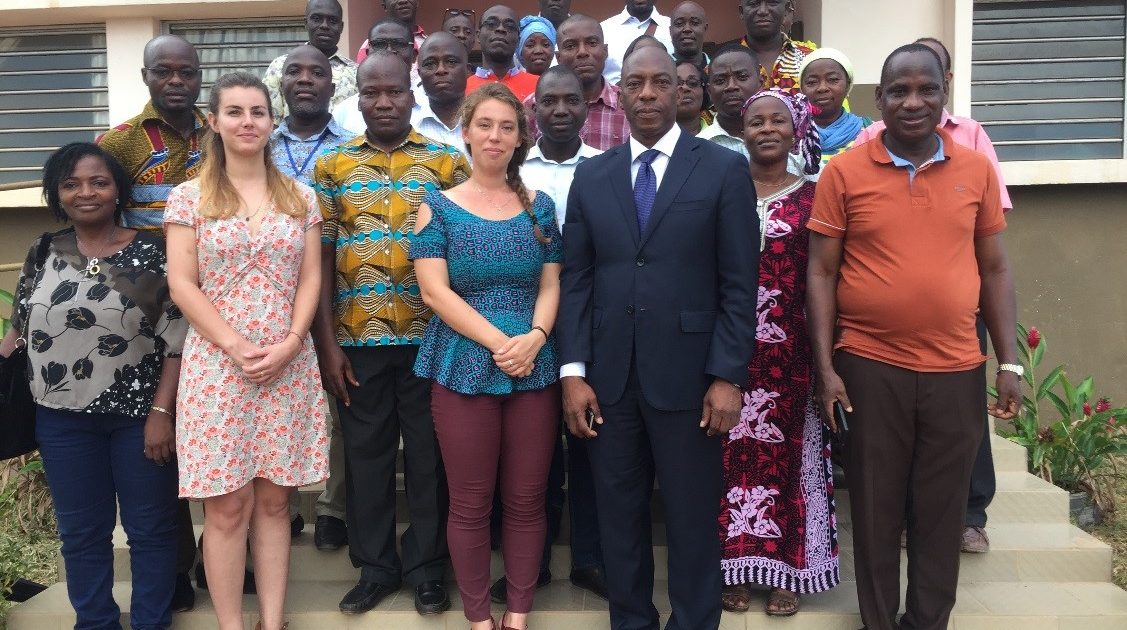
On 22 May 2019, San Pedro Legal Clinic’s team visited the premises of the city Center for Animation and Educational Training (CAFOP) for a session with the institution’s trainers, thus marking the culmination of a collaboration aimed at strengthening their knowledge of children’s rights.
CAFOP is a training centre for teachers who will be assigned to public primary schools (first cycle of children’s school education). During their apprenticeships, the teacher candidates will review all the subjects that will be taught from CP to CM2 (grades 1 to 4 in Quebec). Their time schedule is composed of modules in French, mathematics, child psychology and Education for Human Rights and Citizenship (EDHC). Each subject is taught by a teacher specially trained in this particular skill, except for EDHC courses. Some teachers from other disciplines are called each year to fill vacancies in this specialty. As a result, without having had the opportunity to participate in existing ministerial seminars on EDHC, those responsible for teaching this discipline are often forced to train themselves.
For several months, the IBCR cooperant, who acts as legal advisor to the San Pedro Legal Clinic and its host structure, have been working closely with the management of CAFOP in the region to target the needs of current EDHC teachers, but also of other trainers in the centre who could eventually be assigned to this task. To this end, the Clinic team periodically attended CAFOP’s EDHC courses, distributed questionnaires on children’s rights, and organized working sessions with the people concerned. It is therefore in the light of these activities that the the legal advisors developed a working session addressing the guiding principles of the conventions as well as the rights and duties of children. Notions concerning the distinction between prohibited child labour and socializing work, discipline and physical violence as well as harmful and non-detrimental cultural practices were also included in the session’s programme. The subjects were mainly detailed and implemented through case studies on situations that could occur on Ivorian territory.

The presentations made by legal advisors Jean-Claude Yoboue Yoboue, Alexia Punty and Karina Fauteux generated lively exchanges among the faculty. All participants showed considerable involvement and interest despite the Ramadan fast observed by many of them. The various activities carried out in collaboration with CAFOP stakeholders have therefore borne fruit so that together they can develop a better understanding of the rights enshrined in the various human rights conventions and more specifically the rights of the child.
Karina Fauteux is a voluntary legal adviser deployed in Côte d’Ivoire as part of the project “Protection of children, women and other communities in vulnerable situations” (PRODEF). This project is being implemented by the International Bureau for Children’s Rights (IBCR) and Lawyers Without Borders Canada (ASFC), with financial support from World Affairs Canada. Karina joined the San Pedro Legal Clinic in 2017, where she served 2 terms of 8 months each.





